You are only seeing posts authors requested be public.
Register and Login to participate in discussions with colleagues.
News Showcase
News Items
Are medical errors the third leading cause of death or disability and what can we do to protect ourselves?
Public
 Dr Z. Essak, MD - Vancouver BC - March 4, 2018
Dr Z. Essak, MD - Vancouver BC - March 4, 2018
The TEDx Stanley Park event at the Queen Elizabeth Theatre in Vancouver on Saturday March 3, 2018 was incredible with 13 (a bakers dozen) memorable and inspiring speakers and 4 brief, fun energerizer programs to keep the audience engaged. Two of the presentations addressed medical errors.
With cancer as the leading cause of death and heart disease as the second leading cause, medical errors are referred to by some as the third leading cause of death and disability.
Whether errors are third or not, it makes sense that anything that helps to reduce or prevent medical errors is worth pursuing. Every error that can be prevented has direct benefit to individuals and their families.
Celebrating and helping caregivers
Public
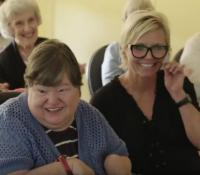 Dr Z. Essak, MD - Vancouver BC - February 16, 2018
Dr Z. Essak, MD - Vancouver BC - February 16, 2018
According to Statistics Canada there are eight million caregivers in Canada. Most are unpaid, regular people who are taking care of aging and ailing parents, children with disabilities, and friends who need them. Caregivers get little or no attention, despite their massive numbers.
Some caregivers find inspiration and friendship from those they care for and some find themselves with personal challenges through caring for others. Healthcare providers may experience the same themselves and see this in those they serve.
Sharing caregivers' stories may help others find inspiration or recognize the impact on themselves and what they might be able to do.
Will the new BC Societies Act transition be a train wreck?
Public
Dr Z. Essak, MD - Vancouver, BC - February 13, 2017.
 No one can deny the importance of BC societies to communities large and small throughout the province, assisting all kinds of people as charitable and not for profit societies, including associations that represent occupations and professions.
No one can deny the importance of BC societies to communities large and small throughout the province, assisting all kinds of people as charitable and not for profit societies, including associations that represent occupations and professions.
What can we learn from the early example of transition by the Doctors of BC, the BC Medical Association, formerly a Reporting Society, declaring themselves to be a member-funded society and escaping public disclosure. Do they even meet the required criteria?
When we ask, it may come as a shock to learn the BC Registry is not confirming compliance requirements are met. Is the BC Government failing to provide proper leadership and oversight to the tasks of government?
Is the public trust being neglected? Will there be havoc on public interest and individual rights? Are we going to see a train wreck?
Cannabis, marijuana, what do we know?
Public
 2016-10-16 Dr Z. Essak, MD - Vancouver, BC
2016-10-16 Dr Z. Essak, MD - Vancouver, BC
Cannabis is a plant that has been part of human history for thousands of years and on every continent. The uses of cannabis are far beyond just medical and recreational use.
What do we really know about cannabis?
Is cannabis more than just good for medical and health use, is it also good for the economy and the environment?
Do we need public oversight to the conduct of Judges?
Public
 2016-10-05 Dr Z. Essak, MD - Vancouver, BC
2016-10-05 Dr Z. Essak, MD - Vancouver, BC
Before we reach a crisis with the Judiciary in Canada is it time for public oversight to the conduct of Judges?
Recently, we have seen the case in Alberta where justice has been delayed and could possibly be derailed because a Judge was not up to date with applicable laws.
We have also seen a case of inappropriate remarks by a Judge, on keeping legs together, raising questions as to him continuing as a Judge.
These are not isolated cases. The Canadian Judicial Council receives many complaints annually, 159 in 2014 and 173 in 2015, on the conduct of Judges from across the country. How do they deal with them?
Will the Federal Government introduce legislation to add public oversight to the Canadian Judicial Council and committee responsible for dealing with complaints on the conduct of Judges?
Don't get swept away by the spin on health care
Public
 2016-08-22 Dr Z. Essak, MD - Vancouver, BC
2016-08-22 Dr Z. Essak, MD - Vancouver, BC
We better be careful not to get swept away by the spin of BC Liberals pre-election buzz.
And when it comes to the spin on health care they're not alone.
The same spin seems to be coming from the leaders of the medical association DoctorsOfBC. Is this the result of being co-managers of BC healthcare for almost a decade through the GPSC and other initiatives?
Is it any surprise they are all so complimenting of each other?
What are we to believe? That they have a plan? That it's going to work, someday, soon?
Yes, the plan to spend tax payer dollars is happening. Billions of dollars and hundreds of millions over budget. So where are the results?
The future of medicine and health care in BC and Canada: Where are we going?
Public
 2016-07-21 Dr Z. Essak, MD - Vancouver, BC
2016-07-21 Dr Z. Essak, MD - Vancouver, BC
What is the future of medicine and health care in BC and Canada? Where are we going?
While everyone is out having fun in the summertime, the Government and other organizations, use the time to put out information they know few people will have time to see or digest. Much like they also use the busy time of Christmas and the winter holiday season to slip through items. Some people may just consider it prudent timing, others may see it as deliberate avoidance of proper public consultation.
The Patient-Physician Covenant: An Affirmation of Asklepios from Annals of Internal Medicine
Public
Medicine is, at its center, a moral enterprise grounded in a covenant of trust. This covenant obliges physicians to be competent and to use their competence in the patient's best interests. Physicians, therefore, are both intellectually and morally obliged to act as advocates for the sick wherever their welfare is threatened and for their health at all times.
Today, this covenant of trust is significantly threatened.
Federal Government seeks intervenor status in B.C. health care court case
Public
Z. Essak, MD - Vancouver - April 26, 2016.
Below is a link to the Globe and Mail article from April 13, 2016.
Hopefully, the debate around the court case, involving Dr. Brian Day's private Cambie Surgery Centre and the BC Provincial Government with a trial scheduled to begin June 6, will not become polarized with views of exclusivity between public and private health care but instead what we could and should do to make public health care more effective so that escape valves, like private care, are less needed without eradicating access to private care by individuals should they need it.
How far do individuals have to go? If the public system delivers the needed service great. If not, is there private care here at home in Canada or do people have to go to other countries?



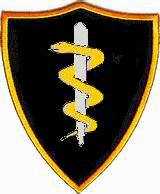 The College of Physicians and Surgeons of BC is looking to hire a new Deputy Registrar with the deadline for applications of April 30, 2015 fast approaching.
The College of Physicians and Surgeons of BC is looking to hire a new Deputy Registrar with the deadline for applications of April 30, 2015 fast approaching. Dr Ian R. McWhinney was an English physician and academic who moved to the University of Western Ontario as the first chair of family medicine in Canada where he started the country's first Department of Family Medicine in 1968. He became known in Canada and around the world as the "Father of Family Medicine".
Dr Ian R. McWhinney was an English physician and academic who moved to the University of Western Ontario as the first chair of family medicine in Canada where he started the country's first Department of Family Medicine in 1968. He became known in Canada and around the world as the "Father of Family Medicine". The I Ching, or Book Of Changes, is an ancient Chinese book. While there are many translations, the German translation by Richard Wilhelm rendered into English by Cary F. Baynes (1950) has become a well respected classic. The book includes a foreword by CG Jung, psychiatrist and psychoanalyst, who has elsewhere described using the I Ching in his psychiatric practice from time to time. An electronic version of the text related to the hexagrams (the oracle), from the first part of the translation, can be viewed online or downloaded using the link below.
The I Ching, or Book Of Changes, is an ancient Chinese book. While there are many translations, the German translation by Richard Wilhelm rendered into English by Cary F. Baynes (1950) has become a well respected classic. The book includes a foreword by CG Jung, psychiatrist and psychoanalyst, who has elsewhere described using the I Ching in his psychiatric practice from time to time. An electronic version of the text related to the hexagrams (the oracle), from the first part of the translation, can be viewed online or downloaded using the link below.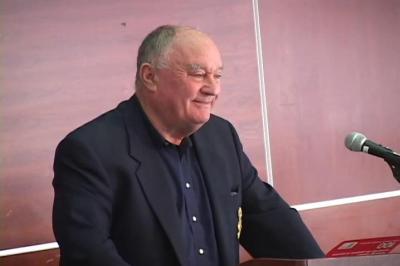
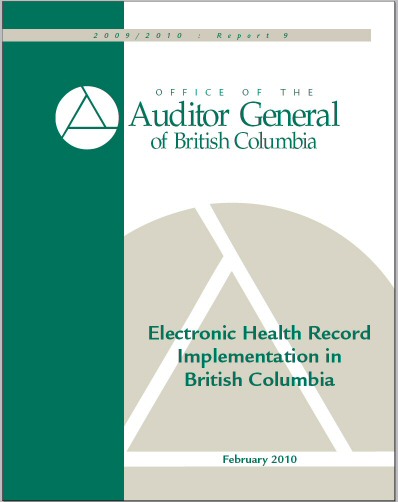
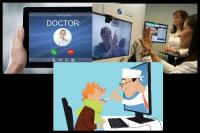 With tongue in cheek some might say it was about time we made more use of the tech we've got and now here we are all using telehealth. What does it mean? What does it look like? How does it work?
With tongue in cheek some might say it was about time we made more use of the tech we've got and now here we are all using telehealth. What does it mean? What does it look like? How does it work? A petition to repeal BC's Bill 36 - Health Professions and Occupations Act has already gathered more than 10,800 signatures. It was presented to the BC Parliament when the session resumed earlier this month. More signatures are still being collected and will be presented to the House later. It is already one of the largest petitions introduced to the BC Legislature.
A petition to repeal BC's Bill 36 - Health Professions and Occupations Act has already gathered more than 10,800 signatures. It was presented to the BC Parliament when the session resumed earlier this month. More signatures are still being collected and will be presented to the House later. It is already one of the largest petitions introduced to the BC Legislature.
 What happens to children born with cerebral palsy when they become adults?
What happens to children born with cerebral palsy when they become adults?
